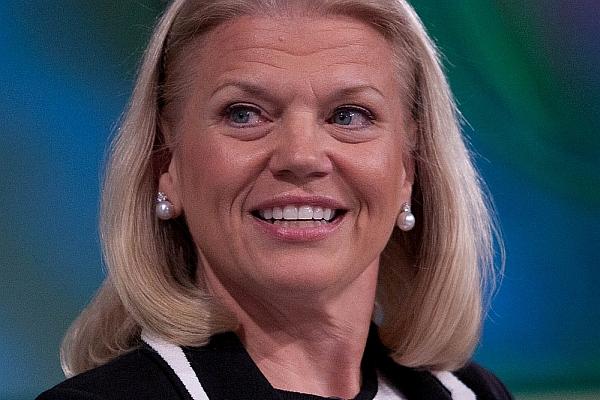Published on the 29/06/2016 | Written by Beverley Head

IBM boss Ginni Rometty returned to Australia after a two-year absence this week, to put enterprise on notice that the cognitive computing era was underway…
Digital transformation it seems is so passé; “When everyone is digital, where is the advantage?” asked Rometty, the chairman, president and CEO of IBM. Digital transformation she said was the “foundation not the destination.”
Now enterprises needed to grapple with cognitive computing or digital intelligence where their data collections could be trawled for deep insight to be served up to help employees or consumers. At a Sydney event showcasing IBM’s Watson cognitive computing platform, Rometty said that “If you are digital today you will be cognitive tomorrow.”
“If you are digital today you will be cognitive tomorrow.”
Speakers from the ATO, Myer, Westpac, Woodside and NAB took part in the event. While most enthused about the potential of the technology NAB CEO Andrew Thorburn warned that organisations needed to be careful to; “Explain it to people – what is cognitive and how can it change client experience – unless we can do that we will potentially get resistance.”
NAB has recently suffered public backlash about its use of Veda credit data to identify when business customers are seeking loans elsewhere, allowing the bank to then reach out with counter offers.
Consumer facing cognitive solutions will need to be careful of crossing the creepy line.
Certainly the range of solutions is growing rapidly.
Unlike the IBM of old which fiercely protected its fiefdom, IBM has opened the APIs to many of Watson’s engines, allowing third parties to develop solutions using the cognitive platform. Rometty said that there were about 550 start ups globally now building businesses around Watson.
That’s not to say it no longer develops solutions itself – Rometty foreshadowed a Company Analyser application developed using Watson which will be released next month and which will provide corporate insight based on analysis of a huge collection of company data.
The company also announced this week that it was partnering with the Melanoma Institute of Australia and MoleMap to use Watson to analyse more than a million images of skin lesions in a bid to reduce unnecessary biopsies and support doctors with melanoma diagnosis.
Deploying cognitive computing to tackle healthcare problems was IBM’s “moonshot” according to Rometty. One of the first applications of Watson was to support oncologists with cancer-related information.
Cognitive computing is “augmenting our intelligence – it is man and machine – and can improve any kind of decision making,” she said. “Five years from now every important decision will be aided in someway by cognition,” meaning that further organisational disruption lay ahead. There would be swift benefits though.
“Five years from now every important decision will be aided in someway by cognition.”
Rometty said that IBM had applied Watson smarts to its internal service desk and had seen the time to resolve problems fall by 60 per cent.
To prepare for the cognitive era CIOs needed to “be clear about the value of your data” and how the application of cognitive computing and smart algorithms could unlock the value in that data. She said that without cognitive systems it would not be possible to keep up with the flood of data.
She said that the choice for enterprises was stark; “Be disrupted or you be the disruptor.”



























